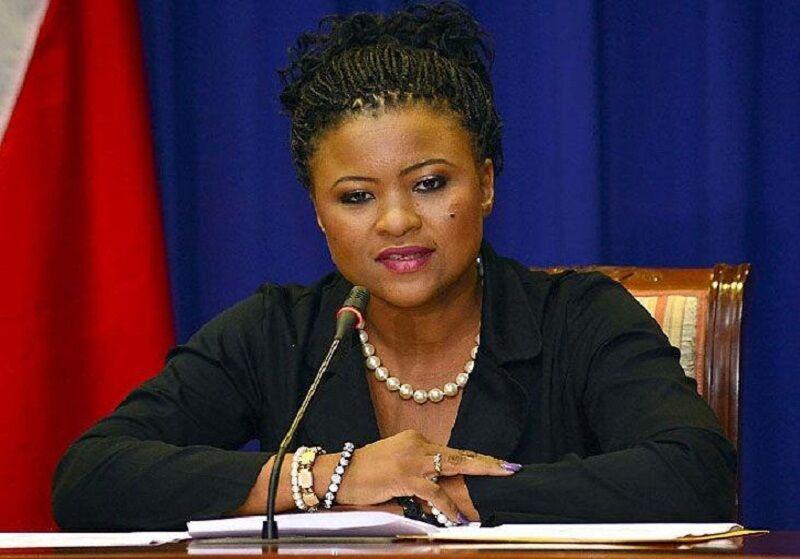(Trinidad Guardian) Unruly students will not be left idle after expulsion, but will instead be enrolled in the Military Led Academic Training (MiLAT) programme through a mandatory policy to cut down on indiscipline while ensuring learning objectives are met.
The policy was announced by Minister of Education Dr Nyan Gadsby-Dolly during a media conference at her ministry on St Vincent Street, Port-of-Spain, yesterday.
Dr Gadsby-Dolly said her ministry was committed to not only upgrading the physical infrastructure of schools but also initiating measures to enhance the academic performance of students.
She reminded parents/guardians that student indiscipline was a major concern of her ministry and stressed that disruptive, violent students would not be allowed to hamper the learning of others.
Pointing out that school officials were usually hesitant to expel students, Gadsby-Dolly said, “In a lot of cases, principals may not want to go the distance of the process of suspension or applying for extended suspension and bringing it to the fore so that there is a record of the behaviour and what that does is that it encourages student misbehaviour, because they believe they can misbehave without consequences.
“In a lot of cases, when we see students reaching the end point where they have to be expelled, it is because they feel that will never happen to them and so they continue with that behaviour.”
Gadsby-Dolly said according to law, children below the age of 16 must be in school, which would allow for their compulsory enrolment into the MiLAT programme. Noting that the mandatory age of schooling for children was up to 16 years, she said children 16 and over could still be enrolled in the programme but that would have to be at the discretion of their parents/guardians.
The MiLAT programme is a social intervention programme under the Ministry of Youth Development and National Service that is specifically designed to help “at-risk” young men between the ages of 16 and 20 years develop more productive behaviours and attitudes. It is co-ordinated and run by military officers.
Noting the incidents of school violence in recent times, many of which were highlighted on social media, some sectors of society have been calling for measures outside of expulsion to deal with unruly students, since expulsion takes the out of the school system for good.
Once students have been expelled, they cannot apply to another government or government-assisted school.
Referring to information gathered by her ministry, Gadsby-Dolly said anti-social behaviour usually began around Form Three for secondary school students, noting that the programme would target this age cohort specifically.
“What we find, however, many of the students we are speaking about are either 16 or over 16. What you tend to see in terms of the pattern of misbehaviour, is that it gets very strong in Form Three,” Gadsby-Dolly said.
“That has an impact on school dropouts because they reach a compulsory age and they make the decision to leave and the state cannot force them to stay in (school).”
Gadsby-Dolly noted, however, that this option would only be available if the intervention of the school’s support systems failed to bring about the required changes in attitudes and behaviour of children.
She also called on parents and school administrators to do their part in enforcing discipline among wayward students, noting this would prevent the need for further disciplinary action.
She said once students were enrolled in the MiLAT programme, the Ministry of Social Development and Family Services and the Ministry of National Security would also be notified to offer assistance through counselling.
Gadsby-Dolly said her ministry would also be working with Servol to assist children below the age of 16 in developing vocational skills.
Gadsby-Dolly also reported that last year, three students were expelled while so far this year, ten students have been expelled.
NPTA endorses
MoE’s plan
The National Parent Teachers’ Association is endorsing the plan to send expelled students to the MiLAT programme.
Recently elected NPTA president Walter Stewart told Guardian Media that as part of his executive’s 16-point plan, dealing with deviant behaviour among school students was on the front burner.
He said this was why such an initiative will be welcomed.
He said they were very much aware of the success of the MiLAT programmes and what it had done for many boys.
However, he said, there was a concern about what would be done for the girls who also misbehave in the school system.
In her 2024 Budget contribution, Education Minister Dr Nyan Gadby-Dolly said girls had been just as guilty of bad behaviour in schools as boys.
She said this was why they were looking at opening up the scope of the MiLAT programme.
“We are recognising more and more that our young ladies are getting involved in the negative behaviours that formerly, there was a multitude of young men. Our young ladies are now getting involved in that same behaviour. So we are looking forward to MiLAT for girls,” the minister said.






